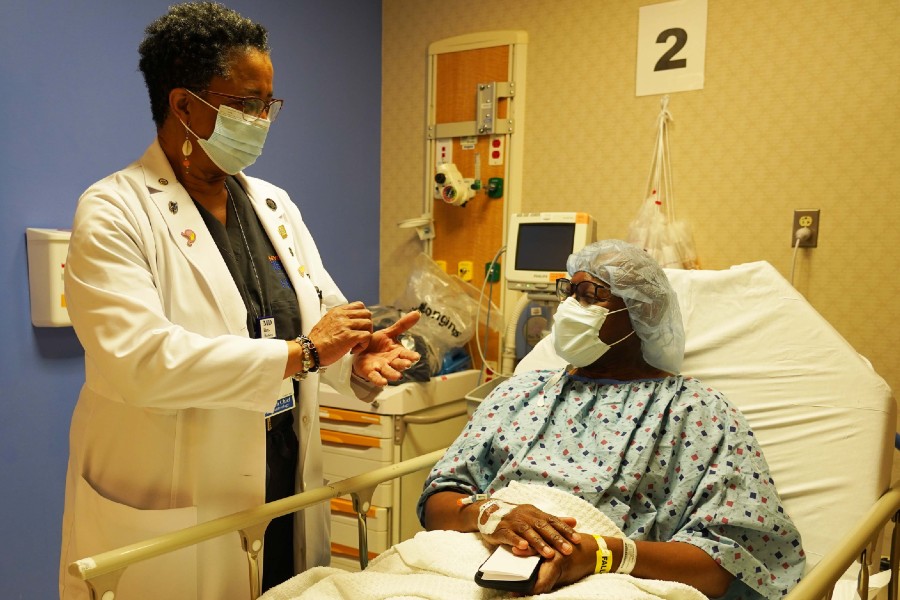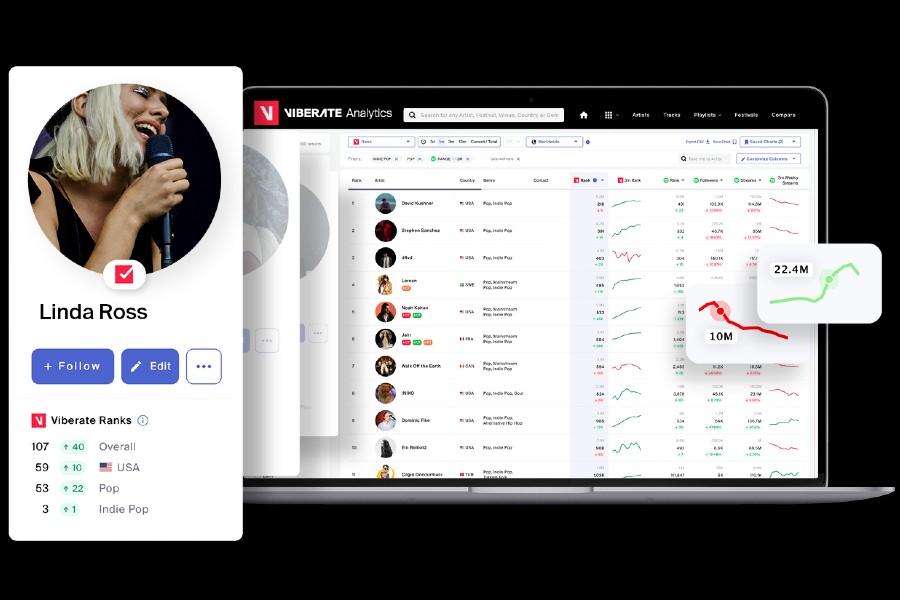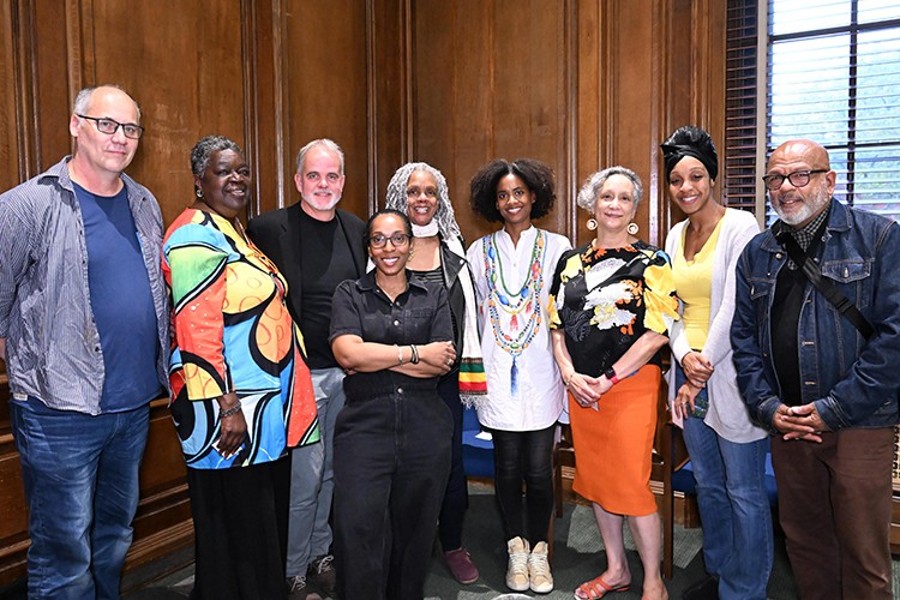 The NYC Commission on Human Rights announced charges today against 12 local and national businesses for violating the Fair Chance Act.
The NYC Commission on Human Rights announced charges today against 12 local and national businesses for violating the Fair Chance Act.
Those that have include Estée Lauder, Family Dollar, Kroll Associates, Tavern on the Green, Serafina Restaurants, Resorts World Casino, Barilla Restaurants, Best Market, Goldfarb Properties, inVentiv Health, Safeguard Self Storage, and Aaron’s Rent-to-Own, which together employ more than 140,000 people nationwide according to a combination of online sources. The complaints are the result of evidence collected by Commission testers following tips and complaints. The businesses have been notified of the charges and the Commission awaits their response.
Under the Fair Chance Act, which amended the NYC Human Rights Law in October 2015, it is illegal in New York City for public and private employers with four or more employees to inquire or make statements about a job applicant’s criminal history during the hiring process, including on job applications and in employment ads, until a conditional offer of employment has been made. The Law gives individuals with a criminal history an equal opportunity to enter the workforce and a chance to move forward with their lives and support themselves and their families. There are more than 9.2 million individuals who have a criminal record in New York State, according to Department of Justice, disproportionately people of color.
There are more than 9.2 million individuals who have a criminal record in New York State, according to Department of Justice, disproportionately people of color.
The Commission also announced fines against Yelp totaling $30,000 in civil penalties and damages for violating the NYC Human Rights Law by discriminating against a job applicant with criminal history. As part of the settlement, Yelp has committed to not inquiring about applicants’ criminal histories during interviews or on applications nationwide.
“Everyone deserves a fair shot at employment, including those with a criminal record,” said Deputy Commissioner of the Law Enforcement Bureau at the NYC Commission on Human Rights, Hollis V. Pfitsch. “The NYC Human Rights Law was specifically amended to prohibit employers from asking applicants about their criminal history before offering them a job so people can be considered based on their skills and qualifications first, not their past. We hope these charges send a clear message to employers across the City that the Commission will not tolerate discrimination based on criminal history and that we will continue to vigorously test, investigate, and hold employers who violate the Law accountable so that every hardworking New Yorker who wants a job can find one.”
“Good laws are the first step, but they are only as good as our outreach and our enforcement,” said Manhattan Borough President Gale A. Brewer. “I was proud to sponsor the Fair Chance Act with Council Member Jumaane Williams, but I’m prouder still to see the Human Rights Commission enforcing it and ensuring that employers end discrimination against applicants with criminal records.”
“Two years ago, we enacted the Fair Chance Act to provide more equity in hiring and give those with criminal records who have paid their debt to society an equal opportunity to compete for jobs as they reenter the workforce,” said Council Member Jumaane D. Williams. “Not only does employment strengthen communities and lower recidivism, but employers have access to a broader range of qualified candidates to consider. I’m pleased that the NYC Commission on Human Rights is forcefully pursuing those who, to their own detriment, are not providing this fair chance, and I am confident that, with the protection of this legislation, both policies and attitudes in hiring will have to change.”
“One of the most important stabilizing factors in a person’s life is a job. That is why the Fair Chance Act is so important for people on probation: knowing that they will not be discriminated against when they apply for a job removes a key barrier to their employment prospects,” said NYC Probation Commissioner, Ana M. Bermúdez. “I thank the NYC Commission on Human Rights for continuing to partner with us in increasing opportunity for people on probation and helping ensure that New York City is safe and fair for all of us.”
Today’s charges against the 12 local and national businesses are the result of the Commission’s testing program which uncovered questions about job applicants’ criminal history on online job applications, in violation of the NYC Human Rights Law. The Commission has notified the businesses of the violations and awaits their response. Possible civil penalties in these and any discrimination cases depend on a range of factors, including the size and sophistication of the business, the willfulness of the violation, the extent to which the business cooperated with the Law Enforcement Bureau’s investigation, whether levying civil penalties is necessary to deter future violations, and the fine’s impact on the business.
The Commission also announced a settlement with Yelp following an investigation into a complaint by an individual who alleged that he was illegally denied employment because of his criminal record. New Yorker Tomas Ramos, who applied to work at Yelp in February 2016 as an Account Executive, was told by a recruiter that his professional “background really impressed [the] recruiting team.” After several successful interviews, Yelp told Mr. Ramos that he must authorize a criminal background check. One week later, the recruiter told him that his background check contained information that would prevent Yelp from hiring him and cancelled his final interview, in violation of the NYC Human Rights Law.
The Commission investigated and settled the case with Yelp, negotiating $20,000 in emotional distress damages for Mr. Ramos and a $10,000 fine for breaking the Law. Yelp immediately admitted liability, cooperated with the investigation, agreed to train all 800 plus New York City-based employees on the Fair Chance Act, post a Notice of Rights poster in their offices, and committed to not inquire about applicants’ criminal history during interviews or on applications nationwide.
“Employers should consider my skills and qualifications, not my past,” said Tomas Ramos, a victim of criminal history discrimination. “How is anyone supposed to get ahead when they stop you at the door? Thankfully, New York City has a strong law that protects people from this kind of discrimination and a venue that can help you fight it when it happens. No one should be defined by their past mistakes. Hopefully cases like mine will help more people realize that they have rights and that they deserve a fair chance at employment.”
Since the enactment of the Fair Chance Act, the Commission has been vigorously enforcing the Law, including:
- Launching 190 Commission-initiated investigations into criminal history discrimination in 2016.
- Conducting 235 tests for criminal history discrimination in 2016.
- Receiving 200 reports of criminal history discrimination in employment in 2016.
- Currently investigating more than 150 claims of criminal history discrimination.
- Levying civil penalties and damages against employers who violate the Law, including $65,000 in fines and damages against an ad agency, $25,000 in damages against a construction company, and $14,650 in damages against residential service non-profit, among others.
- Requiring training on the Fair Chance Act and the NYC Human Rights Law for managerial staff and employees as part of settlement agreements.
- Publishing rules on the Fair Chance Act this year, the first in Commission history, to provide additional clarity to businesses on its enforcement of the Fair Chance Act.
The Commission also regularly educates New Yorkers about their rights and obligations under the Law, conducting 250 outreach events on this protection last year alone. The Commission also partners with the NYC Department of Probation to provide workshops for New Yorkers reentering the workforce, as well as workshops with the New York State Department of Corrections and at Commission Community Services Centers in all five boroughs. Additionally, the Commission partners with local Chambers of Commerce and business associations to educate them and their members on their responsibilities under the Law.
If you or someone you know believes they are the victim of criminal history discrimination, call 311 and ask for NYC Commission on Human Rights or call the Commission’s Infoline at 718-722-3131. Reports may also be filed anonymously. People may also report discrimination on the Commission’s website. Learn more about employment protections against discrimination in New York City at www.nyc.gov/humanrights.
“Our clients are routinely denied the opportunity to work because of convictions that have no bearing on their ability to be successful employees,” said Melissa Ader, Staff Attorney in the Employment Law Unit at The Legal Aid Society. “The Fair Chance Act has enabled our clients to demand that employers view them as individuals—not just as checkmarks—and to obtain stable employment.”
“We are proud to have fought for the passage of the Fair Chance Act two years ago, and even more proud to see the impact the law is having on job access today,” said Alyssa Aguilera, Co-Executive Director, VOCAL-NY. “Today’s announcement sends a strong message to employers that discrimination will not be tolerated, and that employers across the city must give people with conviction histories a fair chance to find work. Thank you to the de Blasio Administration and the NYC Commission on Human Rights for setting the standard for passing and implementing ban-the-box policies across the country.”
“We applaud the City of New York for demonstrating that it is serious about enforcing the Fair Chance Act,” said Beth Avery, staff attorney with the National Employment Law Project. “Passing a law doesn’t mean the work is over. Equally important are public education and outreach to both workers and employers, and dedication to enforcing the law. By publicizing its enforcement actions, the NYC Commission on Human Rights puts employers on notice about their obligations under the law, and encourages workers to come forward and report violations. The Fair Chance Act was intended to challenge the stigma of a record and to open up job opportunities for New Yorkers with a conviction in their past. Today’s actions help move us forward on that path.”
“We are proud to celebrate with the NYC Commission on Human Rights, City Council, and the Mayor’s Office the two-year anniversary of the Fair Chance Act, critical legislation that recognizes the importance of employment for people with justice involvement and the need to create pathways into long-term careers,” said Khalil A. Cumberbatch, Associate Vice President of Policy at The Fortune Society. “We applaud the efforts of the NYC Commission on Human Rights for their zealous investigation and enforcement of the protections established, and appreciate their unwavering support helping our clients and the millions of New Yorkers safeguarded by this law to assert their rights. Annually, The Fortune Society provides services to approximately 7,000 people impacted by the justice system; this law and the litigation pursued by the Commission are strong steps to protect our clients from discrimination, and should be replicated in other public sectors.”
“The relationship between poverty and incarceration is well established — if we want people to rise out of poverty and to break this terrible cycle of incarceration for themselves and their children, they have to be able to go to work,” said George T. McDonald, president and founder of the Doe Fund. “The Fair Chance Act is how we, as New Yorkers and Americans, ensure that no one is deprived of the opportunity to pursue a stable, productive life. The stronger The Fair Chance Act is, the better we can live up to our aspirations of fairness, justice, and equality for all.”
“The HOPE Program serves New Yorkers with diverse backgrounds, including many with criminal justice histories,” said Jennifer Mitchell, Executive Director of the HOPE Program. “We see every day that when these individuals are offered training, support, and opportunities in the workforce, they thrive. They are often among the most valuable employees on the team. We applaud the NYC Commission on Human Rights for recognizing the talents and skills of our fellow New Yorkers and for expanding their access to good jobs.”
“The Community Service Society is proud of the role our agency played in helping to make the Fair Chance Act the law of this City and a model for the nation,” said David Jones, President and CEO of the Community Service Society of New York. “But unless it is vigorously enforced, even the finest of laws is meaningless. Fortunately, the NYC Commission on Human Rights has taken its enforcement mission very seriously. Their bold and relentless pursuit of justice for individuals with conviction histories—as shown by today’s enforcement actions and by their hard work day in and day out—make us ever closer to achieving fairness for those who have already paid their debt to society. Congratulations to the Commission.”
“Youth Represent applauds the NYC Human Rights Commission’s commitment to robustly enforcing the Fair Chance Act,” said Michael Pope, Legal Director at Youth Represents. “Because of their commitment to ending discriminatory hiring practices in New York, countless young people are now being considered for employment based on their qualifications—not their past.”
“Employment discrimination is a serious problem for many of our clients, including those who are trying to rebuild their lives after incarceration, as well as those who have simply been accused of crimes but never convicted,” said Runa Rajagopal, Managing Director of The Bronx Defenders’ Civil Action Practice. “It’s a widespread injustice that touches upon all of our Bronx community. We applaud the NYC Commission on Human Rights for its commitment to vigorously enforce the Fair Chance Act, and for holding employers big and small accountable for their discriminatory practices.”
“The Fair Chance Act ensures fairness for people who face discrimination when applying for jobs. However, without enforcement, many employers may believe they can disregard this crucial law,” said Nicole Salk, an attorney at Brooklyn Legal Services. “We applaud the NYC Human Rights Commission for their strong enforcement of the Fair Chance Act.”
Become a Harlem Insider!
By submitting this form, you are consenting to receive marketing emails from: Harlem World Magazine, 2521 1/2 west 42nd street, Los Angeles, CA, 90008, https://www.harlemworldmagazine.com. You can revoke your consent to receive emails at any time by using the SafeUnsubscribe® link, found at the bottom of every email. Emails are serviced by Constant Contact








